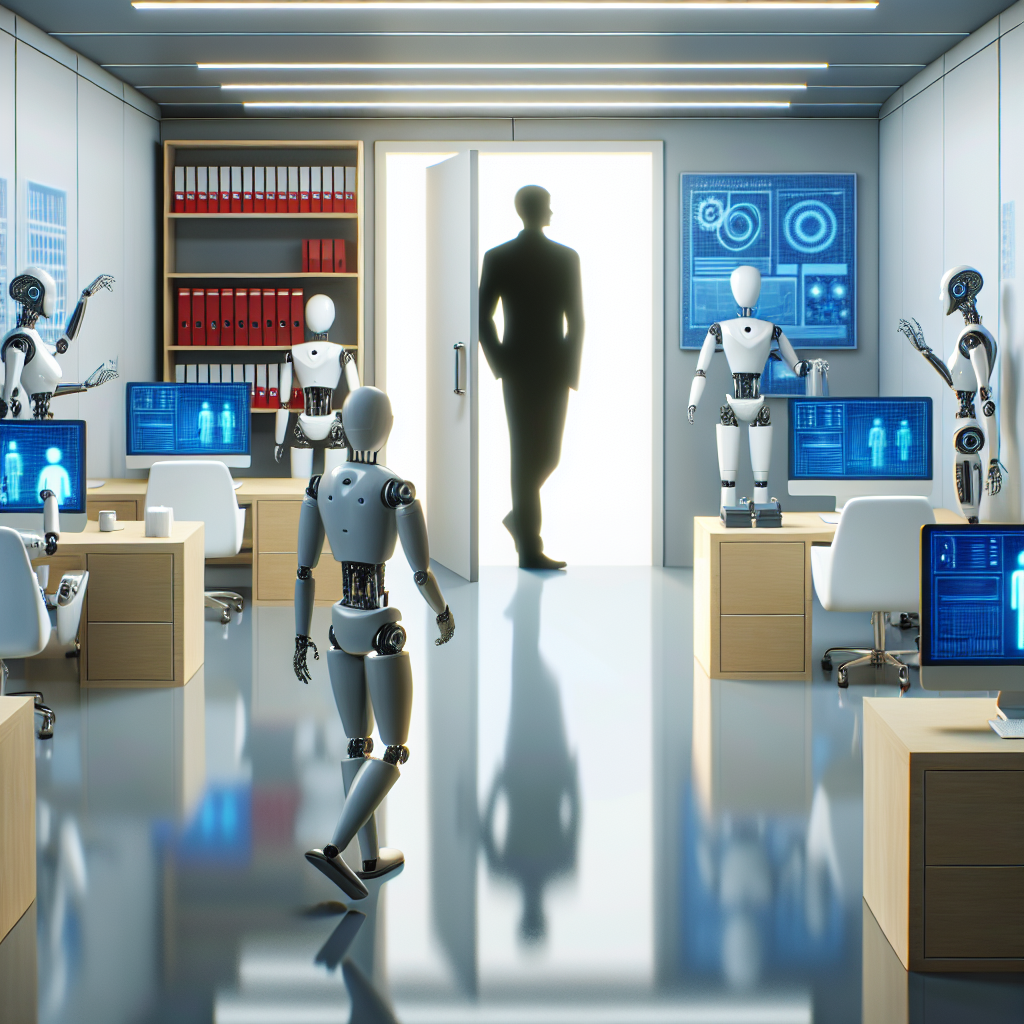The Impact of AGI on the Workforce: Will Robots Replace Humans?
Artificial General Intelligence (AGI) has been a topic of much debate and speculation in recent years. With the rapid advancement of technology, many are wondering what the future holds for the workforce. Will robots eventually replace humans in the workforce? This article will explore the potential impact of AGI on the workforce and discuss whether or not robots will indeed replace humans in the workplace.
What is AGI?
AGI refers to a type of artificial intelligence that is capable of performing any intellectual task that a human can. This means that AGI has the ability to learn, reason, and solve complex problems in a way that is indistinguishable from human intelligence. While current AI systems are limited to specific tasks, AGI aims to create machines that can think and act like humans in a wide range of scenarios.
The Impact of AGI on the Workforce
The potential impact of AGI on the workforce is a topic of much debate among experts. Some believe that AGI will revolutionize the way we work, leading to increased productivity, efficiency, and innovation. Others fear that AGI will lead to widespread job loss and economic upheaval. So, what are the potential implications of AGI on the workforce?
1. Job Automation: One of the most significant impacts of AGI on the workforce is the automation of jobs. As machines become more intelligent and capable of performing a wider range of tasks, many routine and repetitive jobs are at risk of being automated. This includes jobs in manufacturing, transportation, customer service, and more. While automation can lead to increased efficiency and lower costs for businesses, it can also lead to job displacement for workers.
2. Skills Gap: As jobs become increasingly automated, there is a growing concern about the skills gap in the workforce. Many workers may find themselves out of a job if they do not have the necessary skills to adapt to the changing landscape of work. This could lead to increased unemployment and underemployment, as well as a widening income inequality gap.
3. New Job Opportunities: While AGI may lead to the automation of some jobs, it also has the potential to create new job opportunities in emerging industries. For example, the development and maintenance of AGI systems will require a skilled workforce of engineers, data scientists, and AI specialists. Additionally, new industries such as robotics, virtual reality, and augmented reality are expected to grow as a result of AGI advancements.
4. Human-Machine Collaboration: Another potential impact of AGI on the workforce is the rise of human-machine collaboration. Rather than replacing humans entirely, AGI systems may work alongside humans to enhance productivity and creativity. This could lead to a more dynamic and flexible workforce, where humans and machines complement each other’s strengths and weaknesses.
Will Robots Replace Humans?
The question of whether robots will replace humans in the workforce is a complex and multifaceted issue. While it is true that AGI has the potential to automate many jobs currently performed by humans, it is unlikely that robots will completely replace humans in the workplace. Here are a few reasons why:
1. Creativity and Emotional Intelligence: While machines may be able to perform tasks that require logic and reasoning, they lack the creativity and emotional intelligence that humans possess. Many jobs require a level of creativity, empathy, and intuition that machines are unable to replicate. As a result, humans will continue to play a vital role in the workforce, particularly in roles that require these unique skills.
2. Ethical and Moral Decision-Making: AGI systems are designed to make decisions based on algorithms and data, without the ability to consider ethical or moral implications. Humans, on the other hand, have the capacity to make complex decisions that take into account ethical considerations, social norms, and personal values. As a result, humans will continue to be needed in roles that require ethical and moral decision-making.
3. Adaptability and Flexibility: Humans have the ability to adapt to new situations, learn new skills, and think creatively in ways that machines cannot. While machines may be able to perform specific tasks more efficiently than humans, they lack the adaptability and flexibility that humans possess. This means that humans will continue to be valuable in roles that require problem-solving, critical thinking, and innovation.
FAQs
Q: Will robots replace all jobs in the future?
A: While robots have the potential to automate many jobs, it is unlikely that they will replace all jobs in the future. Humans possess unique skills such as creativity, emotional intelligence, and adaptability that machines are unable to replicate.
Q: What can workers do to prepare for the impact of AGI on the workforce?
A: Workers can prepare for the impact of AGI on the workforce by acquiring new skills, staying informed about technological advancements, and being open to lifelong learning. Adapting to the changing landscape of work will be essential for remaining competitive in the future job market.
Q: How can businesses leverage AGI to enhance productivity and innovation?
A: Businesses can leverage AGI to enhance productivity and innovation by integrating AI systems into their operations, automating repetitive tasks, and investing in employee training and development. By embracing new technologies, businesses can stay ahead of the curve and remain competitive in the global marketplace.
In conclusion, the impact of AGI on the workforce is a complex and evolving issue. While robots have the potential to automate many jobs, it is unlikely that they will completely replace humans in the workplace. Humans possess unique skills and abilities that machines are unable to replicate, making them indispensable in the workforce. By preparing for the impact of AGI and embracing new technologies, both workers and businesses can adapt to the changing landscape of work and thrive in the age of artificial intelligence.

